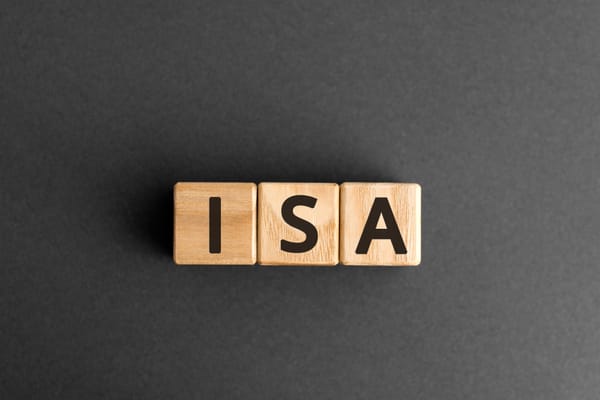3 Cornerstones of a Happy Life

I have been toying with a few ideas around happiness to give myself more clarity and direction in recent years. Life can be tough and complex, and I have felt the challenges that come with balancing a career, personal life, and overall well-being. Through my own experiences and research, I have tried to build a simplified approach to building the foundations of a happy life, focused on three cornerstones: health, wealth, and relationships.
In this post, I want to share my thoughts, practical habits, and some resources that I think are helpful in improving these three key areas of life. There is so much this could help with! Whether struggling with stress and burnout, financial instability, or feeling disconnected from loved ones, these cornerstones offer my take on a framework for building a life that is both meaningful and enjoyable.
Looking after my body - better late then never!

Good health is essential for a happy life. To improve my health, I am trying to incorporate these habits into my daily routine:
- Regular exercise: Physical activity can improve mood, reduce stress, and improve physical health. I step count with a minimum of 7,000 steps per day target, interwoven with a desire to regularly try to improve my endurance for running. Check out the NHS website's fitness section for inspiration and guidance.
- Practice mindfulness: Mindfulness and meditation can reduce stress and anxiety and improve overall mental wellbeing. The NHS website's mindfulness section offers helpful resources and courses.
- Eat a balanced diet: A nutritious diet can help maintain good physical health. I am focusing on consuming fruits, vegetables, lean proteins, and healthy fats while limiting processed and sugary foods. The NHS Eatwell Guide provides detailed guidance.
- Getting enough sleep: Aiming for 7-8 hours of sleep per night and establishing a regular sleep routine. The NHS website's sleep section provides guidance on improving your sleep.
Interested to try? Here are some extra resources that may help:
- NHS website: Provides reliable and comprehensive information on physical and mental health, nutrition, fitness, and sleep. (https://www.nhs.uk/)
- British Heart Foundation: Offers information and resources on heart health, including diet and exercise tips and support for heart disease patients and their families. (https://www.bhf.org.uk/)
- Mind: Provides information and resources on mental health, including advice on seeking professional help, coping strategies, and support for individuals and families affected by mental health issues. (https://www.mind.org.uk/)
Removing the weight of money worries

Money can't buy happiness, but financial stability can certainly make life easier and less stressful. Improving my financial health has been a core focus over the last few years, which I started with the following handy habits:
- Creating a budget: Knowing how much money I have coming in and going out each month helped me make better financial decisions. Most digitally-savvy bank accounts have spending breakdowns. I have tried separate apps for this but never got into them. It may be a preference thing, but I found tracking on a spreadsheet works well for me.
- Saving for emergencies: Unexpected expenses can arise at any time, so it's important to have a rainy-day fund. I found the best start was to save at least three months' worth of living expenses in an emergency fund, then build from there depending on your preference.
- Investing in my future self: Whether it's saving for retirement or investing in a side hustle, investing in my future provides long-term financial security.
- Managing debt: High levels of debt can be a major source of stress. I made sure had a solid plan to pay off my outstanding debts. I have always been a little wary of credit cards and get chills thinking about the interest charged on overdue payments.
- Seek professional help: In hindsight, I left this one a little too late, but good reliable advice from an expert can save you time, money and stress. There are a bunch of places you can find great advice!
Interested to try? Here are some extra resources that may help:
- Money Advice Service: Provides free and impartial advice on a range of financial topics, including budgeting, saving, investing, and managing debt. (https://www.moneyadviceservice.org.uk/)
- Citizens Advice: Offers advice on a range of issues, including debt, benefits, housing, and employment. (https://www.citizensadvice.org.uk/)
- Money Saving Expert: Provides tips and advice on how to save money on everything from utilities to groceries. (https://www.moneysavingexpert.com/)
Giving more to the people I love

Strong relationships with friends and family can provide a sense of belonging and improve overall well-being. To improve my relationships, I have tried to incorporate these habits:
- Spend quality time together: Make time for meaningful interactions with loved ones, whether it's a weekly phone call or a monthly dinner date. Sounds simple, but when you get this right, you really start seeing the value of it.
- Practice active listening: When engaging in conversation, make an effort to really listen and understand the other person's perspective. Check out Mindful's guide to active listening.
- Show appreciation: Expressing gratitude and appreciation for the people in your life can strengthen relationships and improve overall happiness. Check out the Positive Psychology Program's guide to practicing gratitude.
- Resolve conflicts: Conflicts are a natural part of any relationship, but it's important to learn how to resolve them in a healthy and constructive way. I am not naturally a confrontational person, but I can have grumpy days like most people. Usually, it tends to be the people we love the most that sharp end of the stick - I think it has something to do with feeling safe to do this...seems like the wrong way to look at loved ones!
- Seek professional help: If you're struggling with relationship issues, don't hesitate to seek professional support. Relate offers relationship counselling and support services for individuals and couples.
Interested to try? Here are some extra resources that may help:
- Relate: Offers relationship counselling and support services for individuals and couples. (https://www.relate.org.uk/)
- NHS website: Provides advice on a range of relationship topics, including communication, conflict resolution, and dealing with breakups. (https://www.nhs.uk/)
- BBC: Offers tips and advice on building strong relationships with family and friends. (https://www.bbc.co.uk/)
Final thoughts
I hope these three cornerstones I have been obsessing over can also help people reading this to recalibrate and think about their own lives with more clarity. It has certainly helped me narrow down my vision to make things more actionable and achievable.
It's important to note that these habits aren't quick fixes. Incorporating them into your daily routine and making them a part of your lifestyle will lead to long-term benefits. But don't worry, we're all on this journey together. I have tried a bunch, and failed a bunch, but have a strong belief this is the right path to be on.
Challenge yourself to take action today. Start by choosing one habit from each section and committing to it for the next month. Keep track of your progress and celebrate your successes along the way. Keep striving towards a better you!



